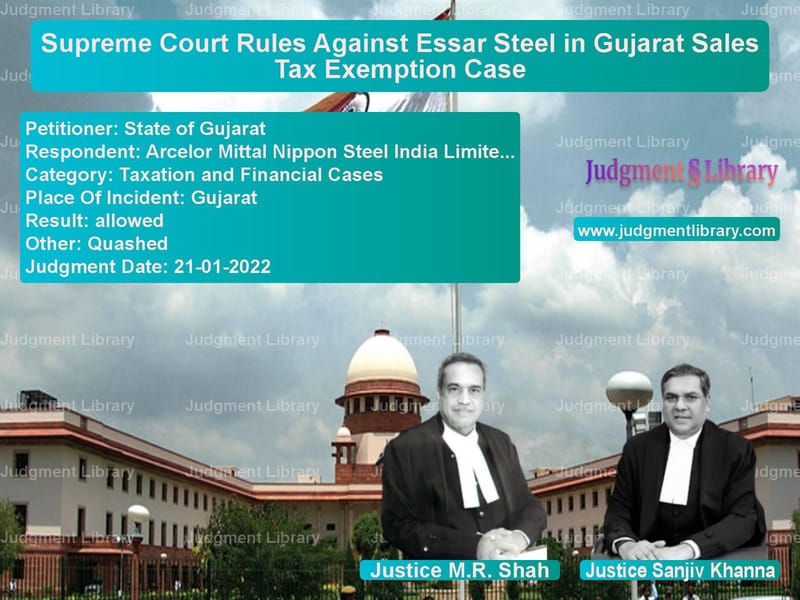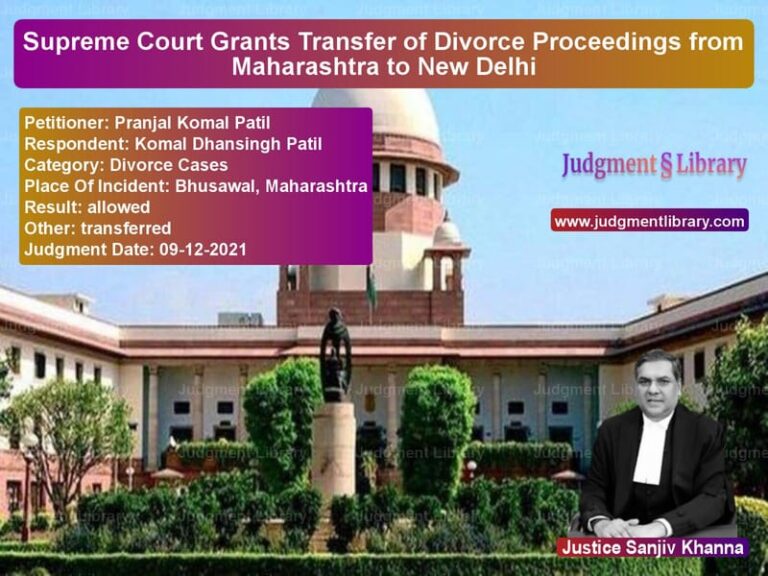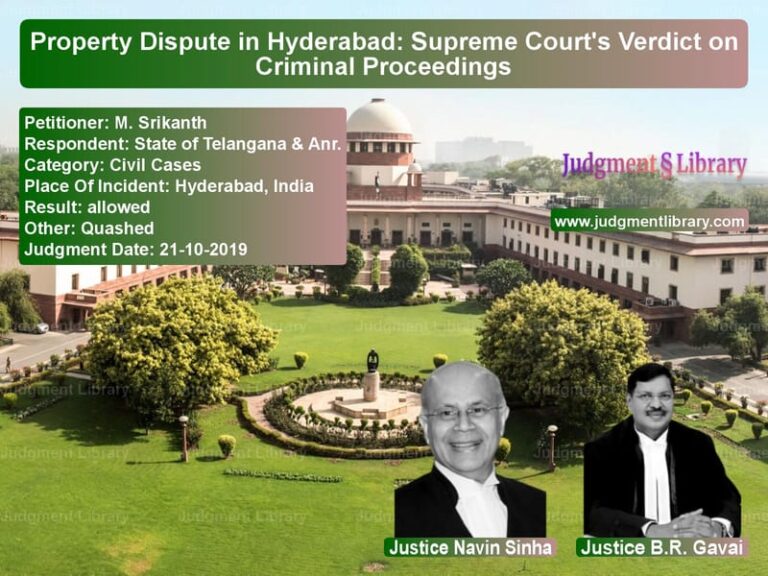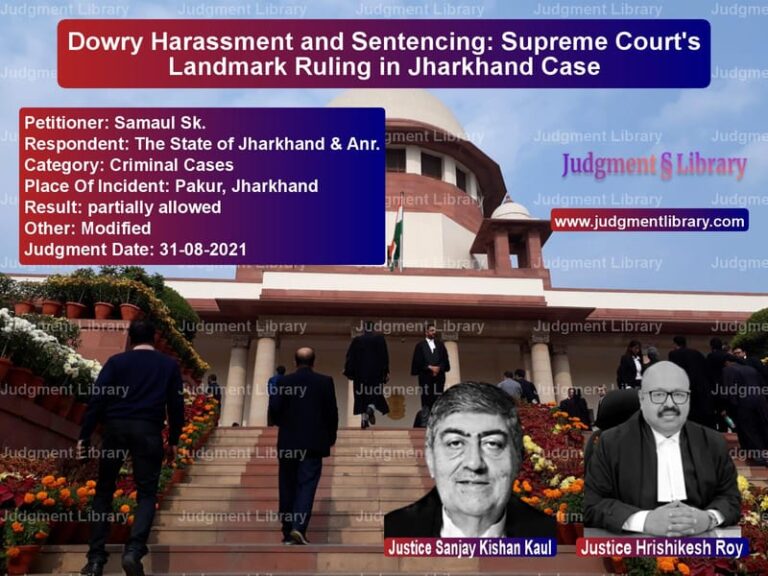Supreme Court Rules Against Essar Steel in Gujarat Sales Tax Exemption Case
The Supreme Court of India recently ruled in the case of State of Gujarat vs. Arcelor Mittal Nippon Steel India Limited, addressing a significant dispute over sales tax exemptions granted under the Gujarat Sales Tax Act, 1969. The case originated from the eligibility of Essar Steel Limited (now Arcelor Mittal Nippon Steel India Limited) to claim exemptions under Entry No. 255(2) of a notification issued by the Gujarat government.
Background of the Case
Essar Steel Limited (ESL), engaged in manufacturing Hot Briquetted Iron (HBI) and Hot Rolled Coil (HRC) at its units in Hazira, Gujarat, had been granted sales tax exemption under a government scheme aimed at promoting investment in core industries. The exemption covered the purchase tax on raw materials such as Naphtha and Natural Gas, under the condition that these materials were to be used in the manufacturing process within the eligible unit.
The Gujarat government, through a resolution in 1991, introduced a scheme offering tax incentives to large-scale industrial units. Essar Steel qualified under this scheme and was granted an exemption with a monetary cap of Rs. 2050 crores, valid from 22.02.1993 to 21.02.2007.
However, the Gujarat Sales Tax Department alleged that Essar Steel had violated the conditions of the exemption by transferring tax-exempt raw materials to Essar Power Limited (EPL) for electricity generation, rather than using them directly in steel manufacturing.
Arguments by the State of Gujarat
- The government argued that Essar Steel’s transfer of tax-exempt raw materials to Essar Power constituted a breach of the exemption conditions.
- It maintained that the exemption was intended solely for manufacturing steel and not for power generation.
- The state contended that the modifications to Entry No. 255(2) in 2000 and 2002 were clarifications and did not alter the original condition that raw materials must be used in the eligible unit itself.
- It emphasized that power generation companies were specifically classified as ineligible for exemptions under the policy.
Arguments by the Respondent (Essar Steel/Arcelor Mittal Nippon Steel India Limited)
- Essar Steel argued that the electricity generated from the transferred raw materials was used in its steel manufacturing process, thus indirectly complying with the exemption conditions.
- It asserted that the conditions of Entry No. 255(2) were met because the materials were used in a manner beneficial to the manufacturing process.
- The company contended that the Gujarat government had, in the past, allowed this practice and had not raised objections.
- It invoked the doctrine of promissory estoppel, arguing that the government could not retrospectively alter the conditions and impose a tax demand.
Observations of the Supreme Court
The Supreme Court, comprising Justices M.R. Shah and Sanjiv Khanna, rejected Essar Steel’s arguments and ruled in favor of the Gujarat government.
The Court observed:
“The original Entry No.255(2) does not provide that the eligible unit after purchase of raw materials can transfer or sell the same to another unit. If such an interpretation is accepted, it would defeat the purpose of the exemption policy.”
It further stated:
“The power generation company (EPL) was classified as an ineligible industry. By transferring tax-exempt raw materials to EPL, Essar Steel allowed an ineligible entity to benefit from the exemption, which is not permissible.”
Regarding the promissory estoppel argument, the Court ruled:
“The principle of promissory estoppel cannot be invoked when the assessee has not adhered to the conditions specified in the exemption notification.”
Final Judgment
The Supreme Court overturned the Gujarat High Court’s decision and reinstated the Gujarat government’s demand for Rs. 480.99 crores in purchase tax, along with penalties.
It held:
- Essar Steel was not entitled to the exemption since it failed to comply with the eligibility conditions.
- The transfer of raw materials to EPL constituted a breach of the exemption conditions.
- The government had the right to recover the purchase tax and impose penalties.
Implications of the Judgment
- This ruling clarifies that exemptions must be strictly interpreted, and any deviation from specified conditions will result in the withdrawal of benefits.
- The decision reaffirms that tax policies and exemptions must be adhered to in letter and spirit, preventing misuse.
- It sets a precedent for other cases where companies attempt to transfer tax-exempt goods in ways not explicitly permitted by the exemption notifications.
- The judgment underscores the principle that tax authorities can enforce conditions even if prior inaction created an impression of permissibility.
Petitioner Name: State of Gujarat.Respondent Name: Arcelor Mittal Nippon Steel India Limited.Judgment By: Justice M.R. Shah, Justice Sanjiv Khanna.Place Of Incident: Gujarat.Judgment Date: 21-01-2022.
Don’t miss out on the full details! Download the complete judgment in PDF format below and gain valuable insights instantly!
Download Judgment: state-of-gujarat-vs-arcelor-mittal-nippo-supreme-court-of-india-judgment-dated-21-01-2022.pdf
Directly Download Judgment: Directly download this Judgment
See all petitions in Tax Evasion Cases
See all petitions in GST Law
See all petitions in Judgment by Mukeshkumar Rasikbhai Shah
See all petitions in Judgment by Sanjiv Khanna
See all petitions in allowed
See all petitions in Quashed
See all petitions in supreme court of India judgments January 2022
See all petitions in 2022 judgments
See all posts in Taxation and Financial Cases Category
See all allowed petitions in Taxation and Financial Cases Category
See all Dismissed petitions in Taxation and Financial Cases Category
See all partially allowed petitions in Taxation and Financial Cases Category







